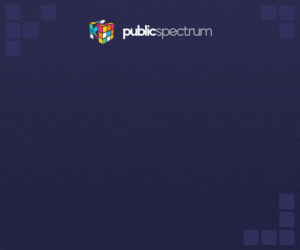Community Development through Sharing Space Digitally
Share

Centuries ago, communities realised that they needed a place to meet, celebrate and be social… and so the concept of the town hall was created. In most cases, community locals constructed these town halls by contributing their skills to ensure the upkeep of the town hall and its small garden.
Fast-forward to modern times, these old town halls have evolved to become sleek, modern community centres.
Community locals have given way to the professional services of the local government, which ensure that community facilities are well-maintained and adhere to the latest safety standards.
These spaces, as they always have, hold a vast array of activities and people from all walks of life. Multicultural and multipurpose events such as weddings, workshops, trainings, meetups and dance practices are just some of the activities that these spaces are being utilised for.
As infill development occurs in cities across Australia, the need for community spaces has never been greater. But infill development isn’t the only reason for the need to increase community spaces.
The mobile workforce, which emerged around five years ago, was an exception before the pandemic. However, it is now the norm rather than the exception.
The COVID-19 pandemic has sped up the nation’s digital revolution. More of us are working from home or from anywhere we like due to social restrictions.
In-work production has increased in speed as more Australians use digital tools to make their work easier. Research even indicates that we won’t be rushing back to the CBD office anytime soon.
We are also currently seeing the continuing rise of the gig economy. These gig economies are being shaped by people who are starting a side business (AKA side-hustle) to supplement their incomes in order to stay afloat. The tools used within the digital world makes it easier for people to become an online entrepreneur in these times.
As a result of the digital and remote changes we are witnessing in our work culture, space-as-a-service is required.
Because despite the flexibility given by remote working, the mobile workforce still needs to get together at times for certain things. An online-working side hustler still needs to meet up with clients or run a seminar. Those organisation meetings still need a central place to meet up sometimes because a Zoom meeting at home isn’t suitable.
Space-as-a-service is required because of the necessity for remote workers to have occasional work meetups and events.
The challenge now is – how do you increase bookings at community centres while staying sane? After all, the pandemic has made it difficult to easily book community centres like we used to.
The number one consideration for this is to look at online bookings for your spaces where you have downtimes. It is likely that you know of a centre space that is under-utilised and could or should at least be covering costs.
By making the shift from the manual process of booking a space to a process with simple automation, you will experience a rare commodity – time.
– Time to work on place and activations
– Time to proactively engage with regular hirers
– Time to help in developing community programs
Increasing the use of spaces for digital and remote work comes with a number of benefits – the most important being that more people will generate a vibrant atmosphere, a sense of place and greater community connection.
Jeremy Hurst is a co-founder of SpacetoCo. SpacetoCo collaborates with local governments and community centres across Australia and NZ.
Jeremy Hurst is a co-founder of SpacetoCo.
SpacetoCo collaborates with local governments and community centres across Australia and NZ, allowing anyone to share and book community spaces by the hour for meetings, work, celebratations, and more.














